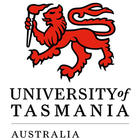Graduate Diploma of Financial Planning
Graduate Diploma of Financial Planning
The Graduate Diploma in Financial Planning is designed for new entrants and experienced financial planners who provide standard financial or para-planning services. This course explores important steps in the financial planning process such as gathering qualitative and quantitative data, identifying goals, and recognising financial problems. Key assessments will test your…
Categories
COURSE DESCRIPTION
The Graduate Diploma in Financial Planning is designed for new entrants and experienced financial planners who provide standard financial or para-planning services.
This course explores important steps in the financial planning process such as gathering qualitative and quantitative data, identifying goals, and recognising financial problems. Key assessments will test your ability to apply financial planning theory to develop strategies and address financial challenges. You will also develop a range of skills and knowledge associated with providing compliant financial advice to clients across different types of financial products.
Course objectives
The aim of the course is to provide a sound understanding of the process of financial planning, together with some of the fundamental skills and knowledge that are required. In line with these objectives, each of the recognised steps in the financial planning process that have been developed by financial planners will be examined in detail, namely: gathering qualitative and quantitative data; identifying goals; identifying financial problems including: setting priorities, deciding on trade offs and considering opportunity costs; preparing or interpreting written recommendations; implementing agreed-upon plans; and, reviewing, revising and maintaining personal financial plans.
The `key areas’ that are important for the financial planning process are examined, namely: the regulatory framework; investments; managed funds; superannuation; home ownership; risk management and insurance; taxation; consumer credit; social security; estate planning. The role of institutional culture and organisational systems impacting on ethical practice and the need and opportunity to professionalise financial advice will be examined. Learning and teaching in this program focus on the key areas of financial planning theory, process, strategies and practice.
The program takes a structured, scaffolded approach to its curriculum, where knowledge, skills and graduate attributes are built over time through an integrated and complementary set of financial planning units. The program is based around a dynamic, real world learning approach to student centred education, where students take responsibility for their own learning. Blended learning, as the central teaching and learning philosophy, forms the basis of the learning experience, where the class – whether online or face to face – is a space for in-depth, theory-practice discussion with peers, academic staff and financial planning professionals. The program is designed to develop students’ knowledge and skills to apply financial planning philosophy and theory to analyse, evaluate and develop solutions and strategies to financial planning problems through authentic, problem-based learning.
Graduates will have the capacity to reflect on experiences, and interpret complex information and practices through research and inquiry. Work functions in the occupational areas where this qualification may be used are subject to regulatory requirements.
Learning Outcomes:
1 Apply advanced knowledge and understanding (including critical understanding of theories and principles) of the practice of financial planning.
2 Use advanced skills and abilities to apply the 6- step financial planning process in accordance with Financial Planning Standards Board standards and ethical practices.
3 Exhibit the competence to manage complex technical or professional activities or projects in the field of financial planning, with responsibility for decision-making.
4 Demonstrate commitment to ethical behaviour, and compliance with a Code of Ethics and/or Code of Professional Conduct Commitment to providing financial planning in the best interests of clients while observing all legislated and professional ethical obligations including those prescribed under ASIC’s RG 146.
REQUIREMENTS
In addition to the requirements for International applicants must provide one of the following: Successful completion of English for Academic Purposes 2 at the University of Tasmania with a minimum overall score of 65% (no individual score less than 60%).
An IELTS score of 6.5 (no individual band less than 6.0);
A TOEFL (iBT) overall score of 88 (no individual skill below: Reading 16; Listening 16; Speaking 18; Writing 22);
A PTE Academic 58 with no score lower than 50.
EDUCATIONAL INSTITUTION
The University of Tasmania was officially founded on 1st January 1890 and is located at Sandy Bay, Tasmania. In addition to the main campus at Sandy Bay, it also operates out of the Newnham Campus and the Cradle Coast Campus. The most popular courses offered are the environmental studies that include wilderness management, marine sciences and indigenous studies in Tasmanian literature. Other unconventional courses include agriculture development, studies on the community and population and ocean study programs. The university also comprises of a Music Conservatorium, Art school and a School of Clinical studies.




